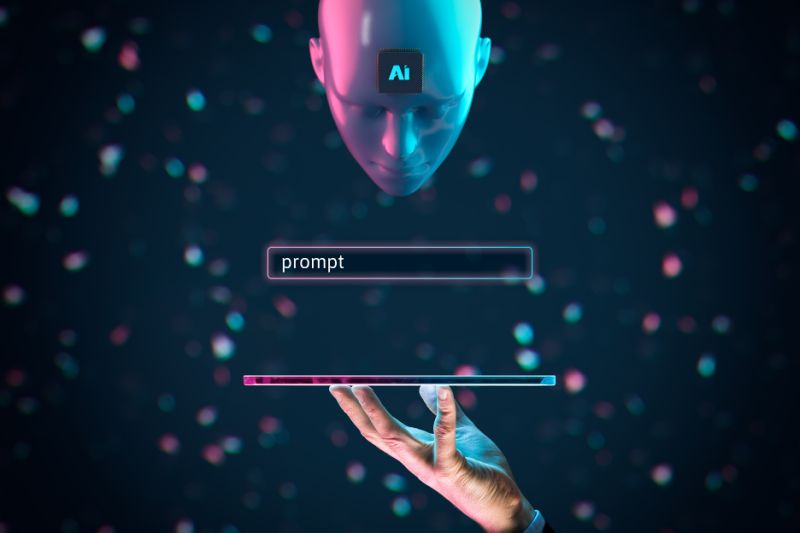𝐖𝐡𝐲 𝐀𝐈 𝐍𝐞𝐞𝐝𝐬 𝐙𝐞𝐫𝐨 𝐓𝐫𝐮𝐬𝐭: 𝐒𝐞𝐜𝐮𝐫𝐢𝐧𝐠 𝐭𝐡𝐞 𝐍𝐞𝐱𝐭 𝐆𝐞𝐧𝐞𝐫𝐚𝐭𝐢𝐨𝐧 𝐨𝐟 𝐈𝐧𝐭𝐞𝐥𝐥𝐢𝐠𝐞𝐧𝐭 𝐒𝐲𝐬𝐭𝐞𝐦𝐬.
As AI transforms industries, Zero Trust is the key to protecting data, preventing breaches, and ensuring secure intelligent systems.AI driven systems, once a science fiction concept, are now integral to various sectors, enhancing productivity and transforming industries. Despite their capabilities in predicting, and automating, a critical question arises: Are we securing these AI systems adequately, robust security measures are important to prevent manipulation and exploitation, as vulnerabilities can be targeted by threat actors.
𝐓𝐡𝐞 𝐏𝐫𝐨𝐛𝐥𝐞𝐦: 𝐀𝐈 𝐖𝐢𝐭𝐡𝐨𝐮𝐭 𝐒𝐞𝐜𝐮𝐫𝐢𝐭𝐲 𝐢𝐬 𝐚 𝐑𝐢𝐬𝐤 𝐌𝐮𝐥𝐭𝐢𝐩𝐥𝐢𝐞𝐫
Unlike traditional systems, AI thrives on data massive amounts of data. It learns patterns, makes decisions, and interacts with sensitive information. But what happens when:
➡️ An AI model is trained on poisoned data, causing it to make biased or incorrect decisions
➡️ Threat actors manipulate AI generated content, spreading misinformation at an industrial scale.
➡️ Cybercriminals gain access to AI powered automation, disrupting entire
𝐖𝐡𝐲 𝐀𝐈 𝐍𝐞𝐞𝐝𝐬 𝐙𝐞𝐫𝐨 𝐓𝐫𝐮𝐬𝐭
➡️ 𝗔𝗜 𝘀𝘆𝘀𝘁𝗲𝗺𝘀 𝗺𝘂𝘀𝘁 𝗯𝗲 𝗰𝗼𝗻𝘁𝗶𝗻𝘂𝗼𝘂𝘀𝗹𝘆 𝘃𝗲𝗿𝗶𝗳𝗶𝗲𝗱: AI evolves with data, requiring continuous verification rather than a one-time security check to prevent compromise at any stage.
➡️ 𝐃𝐚𝐭𝐚 𝐢𝐧𝐭𝐞𝐠𝐫𝐢𝐭𝐲 𝐢𝐬 𝐞𝐯𝐞𝐫𝐲𝐭𝐡𝐢𝐧𝐠: AI models depend on data for decision making, and data changes can impact behavior, possibly causing issues. Zero Trust frameworks provide ongoing authentication and security for data sources.
➡️ 𝐀𝐜𝐜𝐞𝐬𝐬 𝐜𝐨𝐧𝐭𝐫𝐨𝐥 𝐢𝐬 𝐜𝐫𝐢𝐭𝐢𝐜𝐚𝐥: AI systems function in various environments, such as cloud computing, IoT, robotics, and enterprise networks. Without stringent identity and access management, unauthorized users could misuse AI for malicious purposes
𝐇𝐨𝐰 𝐎𝐫𝐠𝐚𝐧𝐢𝐳𝐚𝐭𝐢𝐨𝐧𝐬 𝐂𝐚𝐧 𝐀𝐩𝐩𝐥𝐲 𝐙𝐞𝐫𝐨 𝐓𝐫𝐮𝐬𝐭 𝐭𝐨 𝐀𝐈
➡️ 𝐒𝐞𝐜𝐮𝐫𝐞 𝐀𝐈’𝐬 𝐒𝐮𝐩𝐩𝐥𝐲 𝐂𝐡𝐚𝐢𝐧: Vet and verify every AI model, dataset, and software component before deployment.
➡️ 𝐄𝐧𝐟𝐨𝐫𝐜𝐞 𝐬𝐭𝐫𝐨𝐧𝐠 𝐢𝐝𝐞𝐧𝐭𝐢𝐭𝐲 𝐚𝐧𝐝 𝐚𝐜𝐜𝐞𝐬𝐬 𝐜𝐨𝐧𝐭𝐫𝐨𝐥𝐬: Limit access to AI systems with MFA and role based permissions.
➡️ 𝐌𝐨𝐧𝐢𝐭𝐨𝐫 𝐚𝐧𝐝 𝐚𝐮𝐝𝐢𝐭 𝐀𝐈 𝐛𝐞𝐡𝐚𝐯𝐢𝐨𝐫: Continuously analyze AI activity for anomalies, unauthorized access, or unexpected behavior.
The future impact of AI depends on trust and robust security, particularly in critical sectors such as healthcare and finance. Safe, ethical, and responsible AI operations are crucial, with the Zero Trust principle emphasizing that security is foundational for AI's success.
